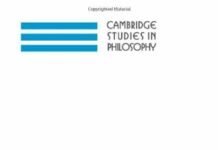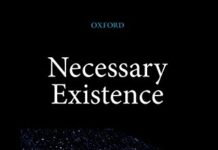
Ebook Info
- Published: 2012
- Number of pages: 478 pages
- Format: PDF
- File Size: 1.16 MB
- Authors: Alexander R. Pruss
Description
This important philosophical reflection on love and sexuality from a broadly Christian perspective is aimed at philosophers, theologians, and educated Christian readers. Alexander R. Pruss focuses on foundational questions on the nature of romantic love and on controversial questions in sexual ethics on the basis of the fundamental idea that romantic love pursues union of two persons as one body. One Body begins with an account, inspired by St. Thomas Aquinas, of the general nature of love as constituted by components of goodwill, appreciation, and unitiveness. Different forms of love, such as parental, collegial, filial, friendly, fraternal, or romantic, Pruss argues, differ primarily not in terms of goodwill or appreciation but in terms of the kind of union that is sought. Pruss examines romantic love as distinguished from other kinds of love by a focus on a particular kind of union, a deep union as one body achieved through the joint biological striving of the sort involved in reproduction. Taking the account of the union that romantic love seeks as a foundation, the book considers the nature of marriage and applies its account to controversial ethical questions, such as the connection between love, sex, and commitment and the moral issues involving contraception, same-sex activity, and reproductive technology. With philosophical rigor and sophistication, Pruss provides carefully argued answers to controversial questions in Christian sexual ethics.
User’s Reviews
Editorial Reviews: Review “This is a terrific―really quite extraordinary―work of scholarship. It is quite simply the best work on Christian sexual ethics that I have seen. It will become the text that anyone who ventures into the field will have to grapple with―a kind of touchstone. Moreover, it is filled with arguments that even secular writers on sexual morality will have to engage and come to terms with.” ―Robert P. George, Princeton University”One Body is an excellent piece of philosophical-theological reflection on the nature of sexuality and marriage. This book has the potential to become a standard go-to text for professors and students working on sex ethics issues, whether in philosophy or theology, both for the richness of its arguments, and the scope of its coverage of cases. ” ―Christopher Tollefsen, University of South Carolina“With great clarity and without recourse to religious argument, Pruss gives the reader an extensive philosophical reflection on love and sexuality. . . . The author examines reproductive technology and concludes that it is only morally permissible when helping coition to be fruitful, so that the child always remains a fruit of the marital act. Pruss has presented us with a substantial apologia on Catholic teaching on human sexuality.” ―Catholic Medical Quarterly“Professor Pruss has thought as deeply and rigorously about the meaning and moral significance of human sexuality, and about the norms by which sexual choices should be guided and sexual conduct governed, as anyone of whom I am aware writing today.” ―firstthings.com“Pruss does not hesitate to deal with all aspects of human sexuality in an open and honest manner, recognizing and responding to objections from the secular world as well as from more liberal Christian writers. His arguments are sensitive to the realities of modern life, but unyielding in adherence to traditional doctrine. . . . College and professional libraries would benefit from having such an articulate and thorough treatment of Christian sexual ethics.” ―Catholic Library World”This is a wide-ranging and deeply interesting book. . . . It is a philosopher’s work of moral philosophy and theology. . . . It has a core thesis, the principal concern of which is to advance a conception of marital union; it then discusses the implications of that thesis for a variety of questions in sexual ethics. Given the variety of debates about marriage currently under way in many cultures, the topic is obviously a significant one.” ―Studies in Christian Ethics“This profound and very readable work sets a new standard for sexual ethics. Built around its central argument is a profound examination of a wide variety of sexual phenomena, many of which are of pressing ethical concern yet are only curiously dealt with by previous writers . . . . I doubt I will read a better book on the philosophy of sex in my lifetime.” ―New Blackfriars“The most impressive thing about One Body is Pruss’s ability to sustain his main argument for the entirety of the work (all four hundred-plus pages), through further complications, responses to objections, and an array of complex and important issues. There are, scattered throughout, several minor arguments that offer secondary support for some of his particular ethical conclusions. But, in my opinion, the greatest contribution that One Body makes to the field of Christian sexual ethics is the systematic approach that it provides for those who want to investigate these issues further.” ―Catholic Social Science Review“This volume is written by a philosophy professor who is also very well versed in Christian theology . . . . It would be interesting for anyone wanting to understand Catholic moral reasoning with regard to sexual issues, and could be especially helpful as a graduate level textbook on marriage and sexuality at a Catholic institution.” ―Religious Studies Review“One Body is a large, ambitious, and impressive defense of traditional Christian sexual ethics . . . Alexander Pruss’s argumentative tenacity (One Body ‘bristles’ with arguments, as they say) is extraordinary, and One Body will become a standard text in sexual ethics.” ―Nova et Vetera About the Author Alexander R. Pruss is associate professor of philosophy at Baylor University. He is the author and co-editor of a number of books, including The Principle of Sufficient Reason: A Reassessment.
Reviews from Amazon users which were colected at the time this book was published on the website:
⭐As a philosopher, I found Alexander Pruss’s analysis of Christian sexual ethics to be both clear and cogent. It was refreshing to hear a defense of natural law theory, which is much needed today in light of common misrepresentations of it in the classroom. As a grad student, I was trying to find a plausible theory of ethics that captured my basic ethical intuitions. This was quite a refreshing read after contemplating various other dead-end consequentialist theories for so long. Pruss utilizes ideas from other philosophers like Socrates, Aristotle, Aquinas, Kant, Kierkegaard, Nietzsche and others to put together a clear and coherent system. All of this comes together to make a theory of sexual ethics which does justice to the Christian scriptures. It is also philosophically convincing, independent of scripture. I have also read some of Pruss’s other academic works on metaphysics, like his book on the Principle of Sufficient Reason as well as another on the metaphysics of modality. This book lived up to my philosophical expectations. Highly recommended for all readers.
⭐Has some good info, but i prefer others thoughts on these topics.
⭐Great book for understanding marriage better.
⭐Razor sharp philosophical arguments. Insightful theological and exegetical remarks. Hands down, the best book on Christian sexual ethics. I highly recommend this book!
⭐Fantastic book!
⭐One of the the most frustrating features of philosophical discussions of sex is that (1) There is a ton of it; and (2) It’s almost always done by those working in the shallowest end of the pool. This is not to say there’s been no quality work on sex by quality philosophers, only that they’ve produced very little of it and almost always in journal articles.Alexander Pruss’ remarkable new book is unusual in that it offers a comprehensive book-length treatment of sex from somebody trained in the most demanding fields of analytic philosophy. But fear not! Pruss’ book combines intelligence and rigor with exceptional clarity. It is an absolute pleasure to read.Pruss calls his approach an “ethics of love.” His central argument, which draws from the Bible, Aquinas, Kierkegaard as well as leading modern secular philosophers, is developed around the idea that “to love someone as they are requires that the love have an appropriate *form* and that one’s actions be true to that form.” This means (to simplify) that to love correctly we need to understand what kind of union with the beloved is truly beneficial given the particular “form” of love that exists in a relationship. With this notion in hand, Pruss leads the reader through a dazzling exploration of human sexuality, touching upon all the most debated issues of the day (contraception, same-sex marriage, pornography, dating, you name it).After 465 engrossing pages, I was sad to reach the end of this book. I take some solace, however, in the fact that it will be widely discussed!(Please ignore the buffoonish one-star review below.)
⭐Contrary to what Mr. Fuchs will have you believe, this is a pretty remarkable text on Christian sexual ethics. It makes a powerful case in favor of a conservative sexual ethic that closely aligns with Roman Catholic teachings on sexual morality (And as a Protestant, I think they’ve got it right in that area!). Pruss develops a unique approach that incorporates insights from both old and new natural law theories. Although this work mainly relates to Christian ethics, many of its conclusions can be accepted by non-Christians as well, for Pruss appeals both to scriptural and philosophical arguments. The wide range of topics that are covered also makes this an excellent reference text.
⭐Since the blurb here on Amazon helpfully tells us that this book’s arguments are grounded in a resume of Thomas Aquinas’ thinking dating from the medieval era, and because the author has approved of this blurb by posting it on his website, we are on safe ground in assessing the possible- worlds of its usefulness as a guide to sexual ethics in the real world. To wit, it could hardly have any chance of doing that for all of society, since the assumptions of Catholic Natural Law theory are simply not accepted by most of Western society as a basis to argue upon. So one scarcely needs to crack open this effort to make the following bald statement: that it has a snowball’s chance in h.e.double-toothpicks of being useful to anyone, except maybe some overwrought right wingers needing something to read on their front porches in more affordable real estate climates like South Bend and Waco, over a place like DC, where they guy used to teach.But even more seriously is the recent bad example set by this supposed maven of logic, in his manifest inability to argue even coherently from the datum of history. And this bad example comes no less in edittorializing with the student body of Baylor University where he teaches. He recently contributed a snippy riposte to some saucy words in the Lariat, their student newspaper. And it shows his willingness to use schoolmarmish punctiliousness to obscure real historical meaning, and worse, a basic inability to draw the most commonsensical lesson from the historical record. All this he is doing in front of the tender minds of young students. Here is his letter:”Dear Sir/Madam:While there is much to complain of regarding the accuracy and fairness of your editorial on indulgences (Feb. 27, 2009), I here only wish to address the concern that “the [Catholic] religion is resorting back to the Medieval Catholic church [sic],” which was also home to the “Spanish Inquisition and the Crusdaes [sic].”The argument, if one may call it that, seems to be this: (a) during the Middle Ages, the Catholic Church had indulgences, the Spanish Inquisition and the Crusades; (b) the Spanish Inquisition and the Crusades were very bad; therefore (c) indulgences are bad.Now, to consider the Spanish Inquisition to be quintessentially medieval is historically rather dubious given that it was founded in 1478, close to the end of the Middle Ages. But the logic of the argument is worse than its history–a similarity in value is inferred from sameness of historical period. One might as well conclude that the very idea of university education is flawed, since the university is largely a medieval Catholic institution, with the University of Bologna being founded in the 11th century with Oxford and the University of Paris following in the 12th (dates much more squarely in the Middle Ages than the late 15th century founding of the Spanish Inquisition, by the way).Are we then to expect future editorials inveighing against universities, cathedrals, the writings of Thomas Aquinas, the poetry of Chaucer, and, while we’re at it, transatlantic travel (hint: 1492=1478+14)?Sincerely yours,Alexander R. PrussAssociate ProfessorDepartment of PhilosophyBaylor University”Now you can see from his last line what his real fear is here!! He doesn’t want anyone to make the much more basic observation that the “writings of Thomas Aquinas”, which were definitely a product of the medieval “mind”, might also be fairly criticized as a basis for a wider philosophy today, and proposals for general society based on such, as being a rather arbitrary choice, to put it in a charitable way. Of course he pounces on the student editorialist’s mistake in not knowing that the Spanish Inquisition came a bit later than the Inquisition proper which had indeed been around for quite a lot of the medieval period. He somehow forgets to mention that inconvenient fact. This alone shows his attraction to punctilious arbitrariness over getting to general, otherhwise obvious truths. Further, he sets a terrible example for these tender students in pretending that criticizing any aspect of the medieval era is tantamount to making absurd claims about things most people like, such as universities, which all those editorializing students’ parents are paying for their kids to attend, and by which this fellow is earning a salary. What he SHOULD have said in defense is what serious historians have been saying for the last century or so. Namely that the Inquisition was probably no worse than any other ruling entity in terms of how it treated those who fell afoul of it. And maybe even better than how certain royalty treated their subjects who got in their way. To their credit, the fathers of the Holy Office KEPT REORDS! It does seem churlish to treat them as unique devils for simply being better bookkeepers!! Still, the way Pruss leaves it here, it leaves one wondering if he has a sorta pro-Inquisition mindset in references to doctrines like Indulgences. Mutatis mutandis, to sex as well?? One wonders.But all these more reasonable arguments from history Pruss is not interested in. The reason is clear why. He does not want the more level-headed approach to medieval phenomena generally to have a showing. Because this would make his personal fancy for Aquinas seem just a particular choice of a worldview that can easily be put into a context. And that context is not one in which most of its deductions are going to be helpful for most people’s struggle to live good lives today. So the more helpful question about the medieval era is — Are there aspects of that period that we definitely all agree are no good anymore?? Well yes and for instance . Think of medieval ideas on the cause of disease. Almost everything has been tossed out, except maybe for some devotees of the “humors”. Someone like this author may CHOOSE to regard Aquinas’ philosophy and morality as not in the same sort of category of uselessness. And he is free to argue that they don’t belong in that category. The fairest thing to say is that itis not prima facie evident one way or the other. Yet it will always be a choice. But it is sure not a slam-dunk as they say at basket-ball crazy schools. As a great lover of medieval polyphony, it comes down to an aesthetic choice, and that is the only fair thing to say also, in charity, about the ambitions of a book like this.
⭐Wow. Love everything about this book. Worth the price for me. 5/5
Keywords
Free Download One Body: An Essay in Christian Sexual Ethics (Notre Dame Studies in Ethics and Culture) in PDF format
One Body: An Essay in Christian Sexual Ethics (Notre Dame Studies in Ethics and Culture) PDF Free Download
Download One Body: An Essay in Christian Sexual Ethics (Notre Dame Studies in Ethics and Culture) 2012 PDF Free
One Body: An Essay in Christian Sexual Ethics (Notre Dame Studies in Ethics and Culture) 2012 PDF Free Download
Download One Body: An Essay in Christian Sexual Ethics (Notre Dame Studies in Ethics and Culture) PDF
Free Download Ebook One Body: An Essay in Christian Sexual Ethics (Notre Dame Studies in Ethics and Culture)



